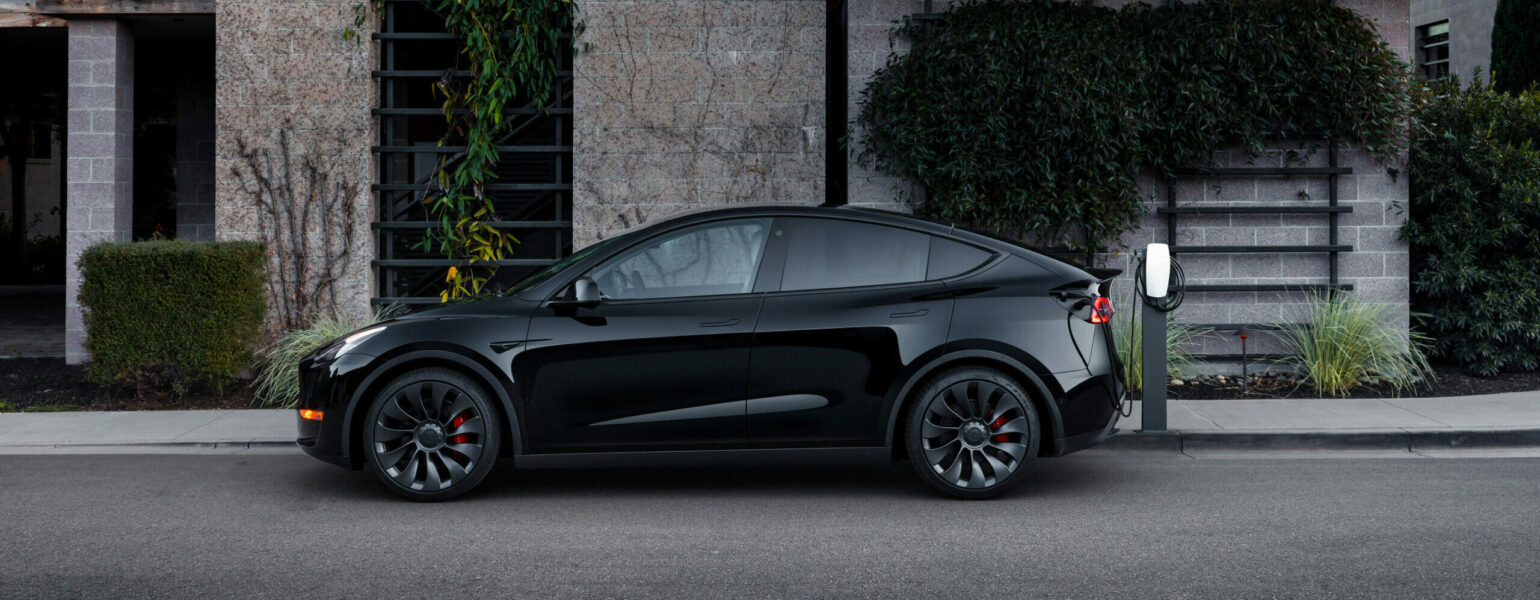
The Election: What Does It Mean For Motorists?
You’ve probably not been able to avoid it in the news these past few weeks, but just in case you didn’t know, this Thursday is the General Election. Whilst it might not be the most pressing matter at previous elections, the cost-of-living crisis as well as the impending combustion engine ban deadline has meant that what each party is promising for motorists could make a big difference to who you are likely to vote for.
With many people struggling to afford to run their cars and commute to work each day, or even dreading the thought of having to switch to an electric car over the next few years, what each party has planned for the future of motoring could make a big difference to how they gain or lose the support of the motoring public.
So what have the major parties promised to do for drivers and road users in their manifestoes, and what could it mean to our daily commutes or motoring expenses?
Conservatives
Our current government have already introduced the ZEV Mandate meaning manufacturers are feeling the pressure with strict EV percentage sales targets and staggered deadlines to be met. They have also pushed back the combustion engine deadline to 2035 from the original 2030 plans quoting readiness of the charging network and the general public’s adoption of EV vehicles as the reason for the delay.
Their manifesto for this election has included the guarantee that they will see the plans for the aforementioned ZEV Mandate through, and ensure that the ‘charging infrastructure is truly nationwide, including rapid charging’. The latter is consistently one of the most mentioned issues when motorists are surveyed about their reluctance to switch to a fully electric vehicle.

Automotive production will also be boosted by their Advanced Manufacturing Plan, a £4.5billion promise to secure strategic manufacturing sectors. This will also add to the promise of backing our ‘world-leading automotive industry’ and will build on the investment in vehicle production in the UK to ensure the impact from competition from China is kept at bay.
The Prime Minister has also stated that new laws will be table to enable the mass roll out of autonomous vehicles, something that is currently not legal on UK roads. This had originally been planned for 2025 but has now been loosely mentioned that it will be in place ‘within the next parliament’.
On the roads, they have stated that the ULEZ areas will be reversed as it is claimed they have moderate or minor effect on the levels of pollution they are preventing from occurring. They will also invest £8.3billion, thanks to the cancelled second phase of HS2, to refill up to repair potholes and resurface roads that are in a bad state of repair. This is on top of the £40billion they claimed has been spent on ‘strategic’ roads over the past decade.
Other points include the introduction of new 20mph zones to be done on a road-by-road basis and through the support of residents, rather than a top-down blanket implementation. Any new schemes will also have to be put to a referendum, and those schemes already in place will now be subject to a ‘right to challenge’ in order to assess their suitability.
A new National Parking Platform will be introduced to make paying for car parking simpler and less confusing to motorists. Local councils will also be given the power to pan parking on pavements to assist disabled and the elderly. Those caught fly-tipping will also be subject to points on their driving license as well as the current fixed penalty notice and monetary fine.
Labour
In order to encourage the switch to EV motoring, Labour have said they will reinstate the 2030 combustion engine ban that has previously been pushed back by the current government. By doing so they believe it will provide certainty for car manufacturers and ensure confidence is retained by the motoring public.
Whilst Labour have thrown a lot of support to EV’s and the transition from combustion engine cars, they have also interestingly left the door open for alternative fuels. For example, £500million has been pledged to support the production of green hydrogen, which is emerging as the alternative to battery electric cars that are also classed as zero emissions. They have also set aside £1.5billion in new ‘gigafactories’ to ensure our automotive industry can remain a key player in vehicle manufacturing.

As with the Conservatives, there has been no mention of buying incentives with electric vehicles. Labour have stated a battery health standard certification will be introduced to ensure pre-owned electric cars have a clear indication of the heath of their batteries.
They have also set new binding targets for the rollout of EV charging points, including the removal of planning barriers for charger height restrictions to make installations easier. The existing Rapid Charging Fund announced in 2020 will also be released and redirected in order to speed up the rollout of the facility for EV users.
Labour have also promises to fund the repair of an additional 1 million potholes each year, thanks to money saved from the cancelation of the A27 bypass, which they have said is ‘poor value for money’.
Despite a lack of specific details, Labour have pledged to ‘tackle the soaring cost of car insurance’, though it has been previously stated that the FCA and the Competitions and Markets Authority would be instructed to launch formal investigations into why the costs have risen significantly.
Reform
Reform have gone radical with their plans for motorists. They are looking to scrap the 2035 combustion engine ban entirely as well as the current ZEV Mandate. They plan to abolish the net zero plans and instead make energy savings to save a claimed £30billion per year over a 5 year term. A bold claim, although for those who believe that electric cars aren’t really the answer and that we should be exploring other ways to be more efficient, at least it is a different way of thinking.
Despite removing the combustion engine ban, they also plan to explore and incentivise UK lithium mining in a bid to push for cleaner energy production. The party claim that there has been a ‘war on motorists’ for some time now and will also scrap the ULEZ and Low Traffic Neighbourhood (LTN) schemes.

For the road network, Reform plan to continue with the current plans to nationalise transport infrastructure. This will involve a national database of utilities, contractors and councils to better improve efficiency, reduce possible delays and coordinate planned works better. This also includes the new £4.7billion Local Transport Fund announced in February by the current government which will particularly focus improvements in the North of England.
Not mentioned in their manifesto yet mentioned at the Reform party’s event in January, the party had also stated that they would look to cut fuel duty by as much as 20p per litre.
Liberal Democrats
The Liberal Democrats are looking to ensure that switching to EV’s becomes easier and cheaper and plans to restore the 2030 combustion engine ban date. To allow more people to make the switch, the plug-in grant that provided an incentive for people to purchase an electric car will be reinstated. Stopped in June 2022, the scheme originally provided EV buyers with a grant of £5,000 towards their purchase, this was later reduced to £1,500 before being scrapped entirely 2 years ago.
Electric car owners would also take advantage of VAT on public charging being reduced to 5%, something that the industry has been calling for in order to make electric car ownership more affordable. They have also planned to roll out more on-street and ultra-fast chargers and ensure that all electric charging points have the ability to pay by card.

For those still using combustion engine vehicles, the Liberal Democrats say they will protect motorist from ‘rip-off’ petrol prices by investigating the lag between wholesale prices falling and the price consumers pay at the pumps. They also promise to give a 5p per litre rebate to rural forecourts in order to make fuel costs cheaper for rural drivers.
As well as investigating the price at the fuel pumps, the party also says they will ‘protect motorists from unfair insurance’, although no further details have initially been provided as to how they will do this.
A welcome promise for those who aren’t tech savvy comes in the form of plans to abolish the current April 2025 deadline for those who use DVLA services at the Post Office. The ability to purchase road tax and renew driving licenses will continue under their plans rather than reverting to online only services.
The Green Party
The Green Party have been even more bold than the others and plan to implement a ban on combustion engine sales as early as 2027, with a total ban on the use of fossil fuel cars by 2035. To support this an extensive scrappage scheme will use £5billion worth of funding to replace all petrol and diesel vehicles with EV’s within the next decade.
The plans for electric power don’t just stop at motoring, they also plan for all homes to stop using fossil fuels and instead to be using clean energy, as well as for those charging their car at home.

The party plans to incentivise a reduction in the use of vehicle use overall, with a firm focus on the increased use of public transport wherever possible. This will be supported by a rising fuel duty percentage additions, similar to the one used by previous governments from 1993 to 2000, in order to make private vehicle use more expensive.
As well as a rise in fuel duty, road tax will be changed so that it is proportional to the weight of a vehicle and all new road building plans will be abolished. They are also looking to implement a default 20mph speed limit in built up areas to make towns and cities safer for children, the elderly and disabled people.
The ULEZ schemes currently in place are not specifically mentioned, however their plans to ban combustion engine cars entirely means that they are likely to remain in place, if not extended further. They did however say that a ‘Clean Air Act’ would be introduced in order to ‘set new air quality standards for the UK’.
Oracle Car Finance
Whoever forms our next government, you can rest assured that Oracle Car Finance has your car funding sorted. With over 2,300 Trustpilot reviews, as four-time consecutive award winners of the Best Specialist Car Finance Provider award from 2020 onwards, and having funded over £2 billion of vehicles and counting, you too can find out why thousands of people trust us time and time again to find a smarter, tailored funding solution when looking for your next dream car.
Make sure you follow us on Instagram, LinkedIn and Facebook to keep up to date with what’s happening in the market and to see some stunning photos and videos of the amazing cars we fund.










